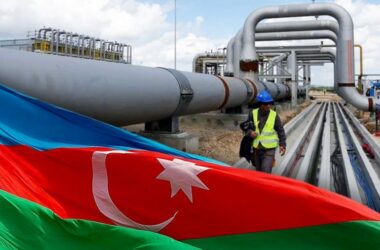As of the 1st of January 2025, Poland has begun its EU Council Presidency, coinciding with the imminent inauguration of Donald Trump. While the future President has signalled his unwillingness to continue supporting Ukraine and risk prolonging the conflict, Poland has, for its part (possibly as a reaction to the Trump White House) articulated a hard-line on demarcating the EU’s interests from those of Russia.
The Eastern European country’s 6-month Council presidency will likely include a push for more stringent sanctions on Russia (as well as Belarus). A statement outlining Poland’s objectives during its EU Council presidency highlights that it perceives itself to be taking charge during a period marked by looming danger from Moscow:
“Europe is grappling with the consequences of Russia’s third year of armed aggression against Ukraine and the need to strengthen its own defence capacity. We are witnessing increasing geopolitical tensions, the erosion of the rules-based international order and hybrid attacks targeting European democracy and security.”
In light of this, the Polish government has asserted that its presidency will prioritize efforts to enhance European security across multiple fronts, including external and internal security, information systems, economic resilience, energy supply, food stability, and public health.
Poland’s tenure is set to pursue seven strategic objectives: external relations, energy, economy, food, climate, health, and information. We may identify three of these priorities as involving perceived possible threats coming from Russia, even if indirectly. Namely,
1 Defence and security (including military support for Ukraine. This comes at a time when Ukrainian military objectives are limited enough – and the prospect of recovering the Donbass remote enough–to warrant a peace settlement.
Poland plans to prioritize strengthening ties between the EU, NATO, and the US, again, particularly amid uncertainties surrounding American commitment to support for the Ukrainian military during the Trump presidency. Its position as a key player on NATO’s eastern flank aligns with its efforts to enhance regional defences and counter Russian threats. Poland will also champion EU enlargement, particularly for Ukraine and other Eastern European nations, while navigating resistance from member states sceptical of further eastern expansion, given the potential for its antagonizing of Russia.
The presidency will also emphasize countering disinformation and bolstering societal resilience. Key initiatives may include improving strategic communication and promoting digital transformation to enhance the EU’s global competitiveness.
2) Border protection, including actions against what has been described as an “orchestrated” migration crisis. Poland seeks to ensure sufficient European funding to strengthen its borders by way of the “Eastern Shield” initiative.
Poland is set to approach migration through a security-oriented lens, emphasizing the need for stronger border controls and faster asylum procedures while resisting mechanisms for redistributing asylum seekers across EU states. Its recent migration strategy, though controversial, reflects a broader push for prioritizing national security and managing external borders. Critics have raised concerns about the strategy’s compliance with legal standards and its potential impact on human rights protections.
3) Fight against supposed Russian election interference through social media and other means. Poland has a presidential election coming up in May, and so may leverage its presidency for domestic ends, as the Polish government’s achievements in the Council may affect the vote.
On this last point, Prime Minister Donald Tusk’s administration has been attempting to reverse policies implemented under the previous government (albeit President Andrzej Duda retains veto power). The upcoming 2025 presidential election provides Tusk with an opportunity to break the domestic stalemate in implementing his reforms.
Given its short term-lengths, we may question the degree to which the Council presidency can genuinely affect geopolitics. Whatever measures are put in place to antagonize a foreign actor (such as Russia) may be perceived as a passing inconvenience not warranting escalation. Furthermore, in a climate of possible–at least relative–U.S. disengagement from the Ukrainian theatre, any hard-line European stance (articulated from the Commission or Council) may be relegated to a merely rhetorical pose. To some degree this is already the case.




